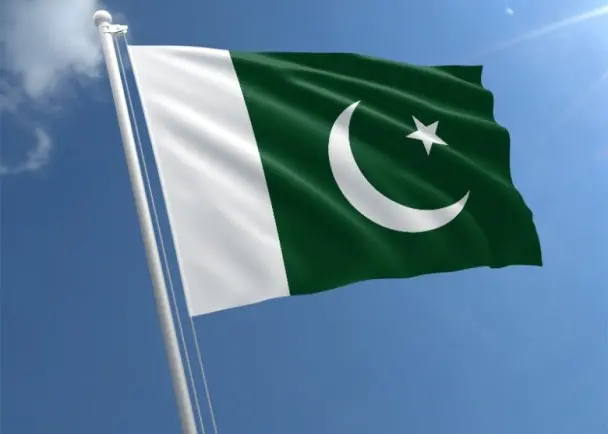Author: Prof. Engr. Zamir Ahmed Awan, Sinologist (ex-Diplomat), Editor, Analyst, Non-Resident Fellow of CCG (Center for China and Globalization), National University of Sciences and Technology (NUST), Islamabad, Pakistan. (E-mail: [email protected]).
In the recently conducted elections held at the United Nations headquarters in New York, Pakistan has secured the membership of three crucial UN bodies – the Commission on Crime Prevention and Criminal Justice (CCPCJ); the Commission on the Status of Women (CSW); and the Commission on Population and Development (CPD). All these Commissions play a vital role in augmenting international cooperation on various social and economic issues.
The elections were held at the Economic and Social Council (ECOSOC), a 54-member primary organ of the UN. Pakistan's election to CCPCJ and CPD was by the unopposed endorsement of all ECOSOC members because of Pakistan's past performance and excellent track record. In the ballot to elect CSW members, Pakistan secured 50 votes. Pakistan will assume the membership of these three Commissions starting the term from 1 January 2022.
Pakistan's simultaneous election to these three crucial Commissions mirrors the international community's confidence in Pakistan's active role and productive and positive contributions to the United Nations. Through its membership of all these Commissions, in line with their respective mandates and Pakistan's pledge to cooperative multilateralism, Pakistan will keep raising international cooperation for combating transnational organized crime and enhancing efficiency and fairness of criminal justice management systems; encourage gender equality and women empowerment, and backing initiatives meant at assisting countries in developing their capacity to produce and analyze population data and information.

Just after one month of gaining independence from British rule, Pakistan formally joined the United Nations (UN) on 30 September 1947. Pakistan is a full is a charter member and participates in all UN's specialized agencies and organizations. These comprise United Nations Development Program (UNDP), the World Food Programme (WFP), the World Health Organization (WHO), the United Nations International Children's Emergency Fund (UNICEF), the United Nations Educational, Scientific and Cultural Organization (UNESCO), UN International Fund for Agricultural Development (IFAD), the United Nations High Commission for Refugees (UNHCR), and UN-Habitat. Pakistan has been chosen by consensus seven times into the UN Security Council, with the most recent term was in 2013. It is also one of the countries having the honor of a diplomat, Muhammad Zafarullah Khan, to serve a term as the President of the United Nations General Assembly.
The Pakistani military has played a vital role in the UN's peacekeeping program in diverse parts of the world, most notably in Somalia, Sierra Leone, Bosnia, Congo, and Liberia. The first time that Pakistani troops contributed to a UN peacekeeping mission was in Congo in 1960. Pakistani troops have worked in 23 countries so far, in a total of 41 UN peacekeeping missions. 141 Pakistani soldiers have been martyred while partaking in peacekeeping missions. As of 2009, Pakistan stood as the most significant contributor of troops to United Nations peacekeeping missions globally.
Pakistan is vigorously working with the global community in the campaign counter to international terrorism. It has offered maximum cooperation and support to the international community to combat this scourge. No country in the world has hurt as much as Pakistan because of this menace. The whole Pakistani nation is determined to eliminate terrorism in all its forms and manifestations.
The United Nations has acknowledged the ongoing efforts of the Pakistan government against elements involved in terrorist activities while noting that the threat from the Tehreek-i-Taliban Pakistan (TTP) had resulted in over "100 cross-border attacks within three months last year", in a new report, it emerged recently.
Pakistan is committed to a world where upholding human dignity is the highest value and maintaining global peace a sacred duty. Pakistan envisages a world that is free of want, starvation, and deprivation. A world where justice and fair play govern the matters of human beings and inequality, oppression, and war are abhorred.
Over the last 66 years, Pakistan has put this vision into practice by making significant contributions to the UN Charter's principles and purposes, particularly the promotion and maintenance of international peace and security, as a member of the Security Council and through its contribution to UN Peacekeeping. It has been an ardent advocate of multilateralism and the importance of the United Nations in international affairs.
Pakistan has been a prominent voice for the reform of the Security Council to make it more democratic, inclusive, and accountable through restructuring of its membership and improvement in its working methods and approach.
Pakistan keeps supporting the need for dialogue, diplomacy, and international cooperation to address and resolve all existing and emerging global challenges effectively and credibly based on consensus and concerted collective actions.
(ASIA PACIFIC DAILY)
 简体中文
简体中文



